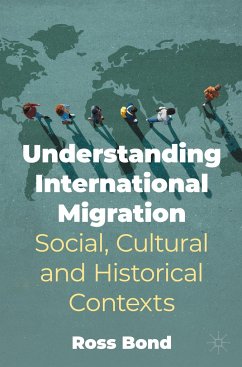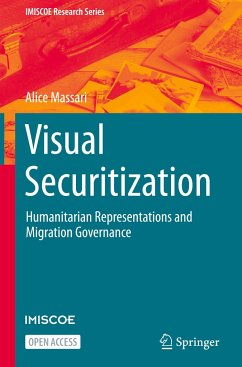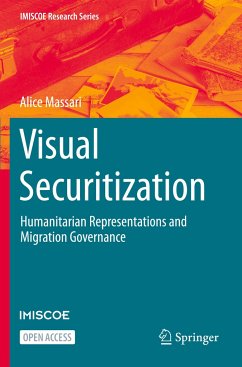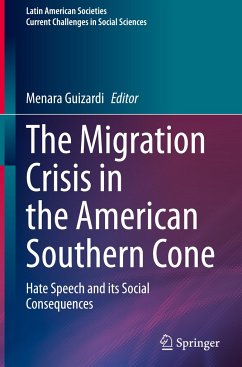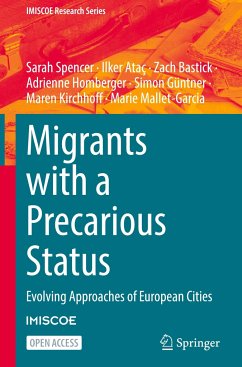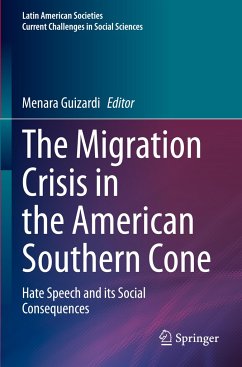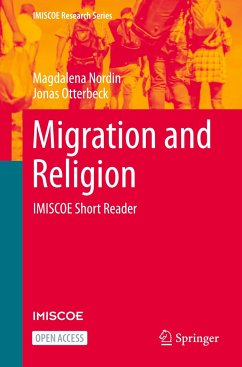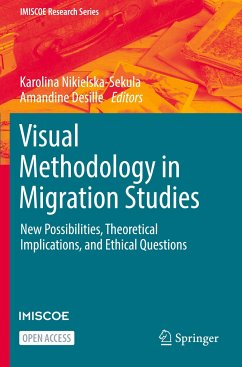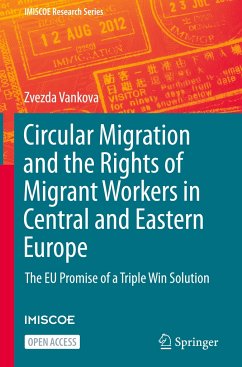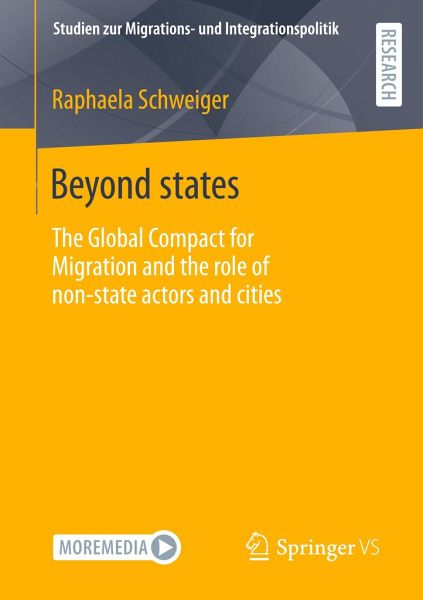
Beyond states
The Global Compact for Migration and the role of non-state actors and cities

PAYBACK Punkte
34 °P sammeln!
This book investigates the role and influence of non-state actors (NSAs) and local authorities in the process leading to the adoption of the 2018 Global Compact for Migration (GCM), the first intergovernmental negotiation of its kind at the UN. The research draws upon methods initially applied to assess global climate negotiations, and for the first time analyzes the influence of NSAs and local authorities in an international negotiation on migration. It builds on an assessment of the state of the art on global migration governance, adding new perspectives and insights. The analysis of the inf...
This book investigates the role and influence of non-state actors (NSAs) and local authorities in the process leading to the adoption of the 2018 Global Compact for Migration (GCM), the first intergovernmental negotiation of its kind at the UN. The research draws upon methods initially applied to assess global climate negotiations, and for the first time analyzes the influence of NSAs and local authorities in an international negotiation on migration. It builds on an assessment of the state of the art on global migration governance, adding new perspectives and insights. The analysis of the influence of NSAs and local authorities is backed by an online survey of participating stakeholders, interviews with key actors, and hundreds of other primary sources obtained from the process. The author finds that the UN system's willingness to onboard NSAs was key to creating the GCM as it stands today. While the research finds little direct influence from NSAs during the negotiations, the first draft of the GCM was very much informed by their input. Local authorities, still new to the global stage, made the case for their further inclusion in global migration governance.





